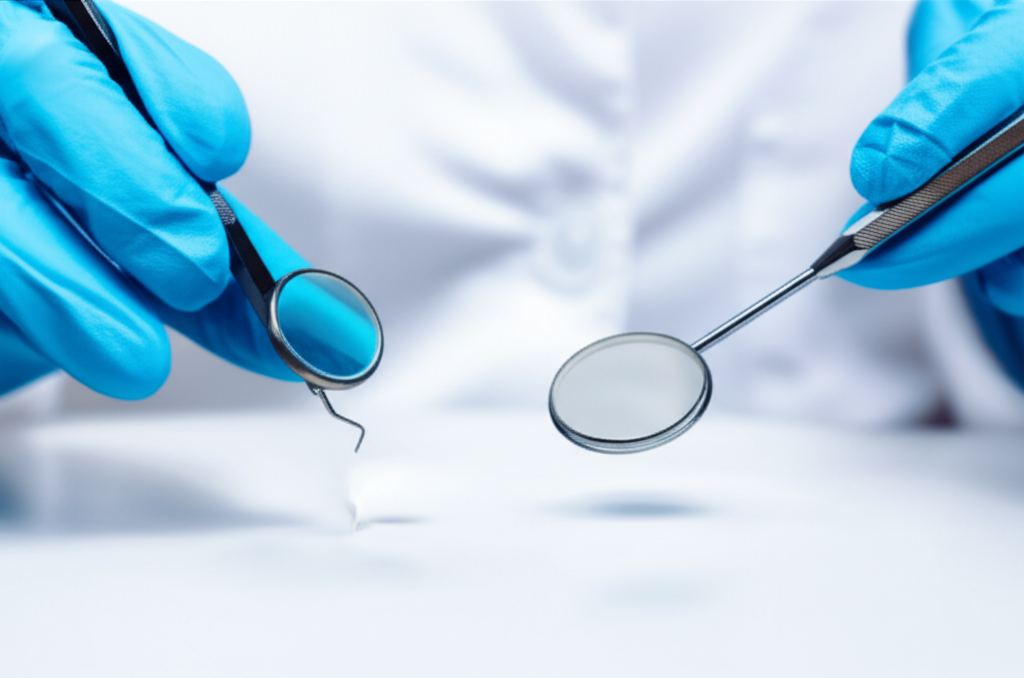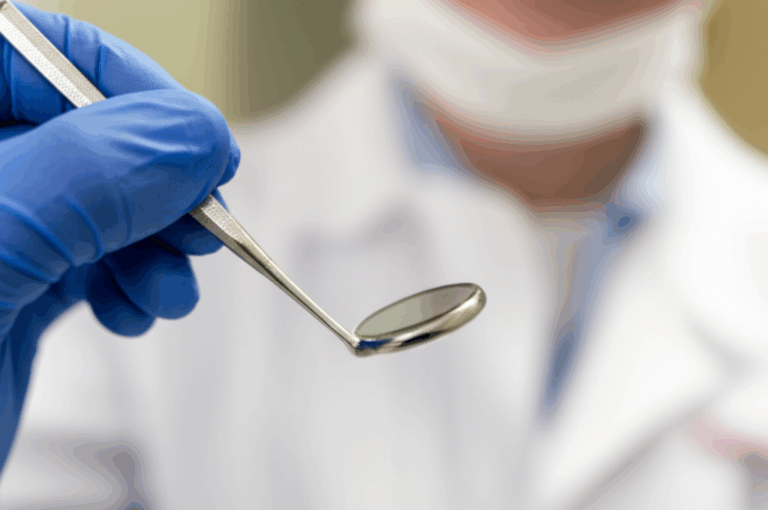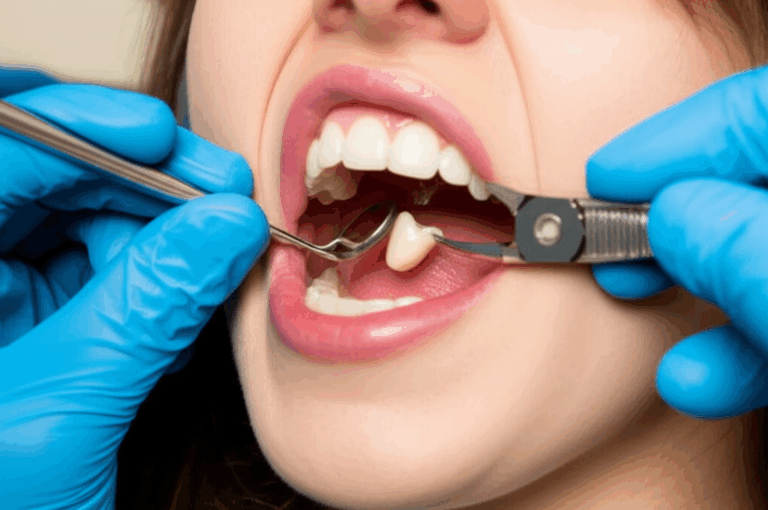
Can I Refuse a Deep Cleaning at the Dentist? (Your Rights & What You Need to Know)
Are you sitting in your dentist’s chair thinking if you really have to get that deep cleaning? You’re not the only one. Lots of people feel confused, worried, or even scared when the dentist talks about something more than a regular cleaning. This simple guide will show you your rights, why dentists say you need a deep cleaning, what happens if you say no, and how to talk about your worries. This article matters because your choices are important—and so is your smile.
Table of Contents
Introduction: What’s the Problem With Deep Cleaning?
Let me tell you a story. A while ago, I went to the dentist for my usual check-up. I thought I was doing everything right—brushing, flossing, and using mouthwash. So, I guessed everything was okay. Then the dentist told me, “You need a deep cleaning.” Deep cleaning? For what? My teeth felt alright. My gums only bled a bit, but who’s perfect?
Many people sit in that chair with the same worries. You may wonder: Can I refuse a deep cleaning? Will my dentist be upset? Will I lose my teeth if I say no? Is it a rip-off? Or is there a real problem I just can’t see?
A lot of us care about our rights as a patient, picking dental care, and also the money part. This article digs deep (see what I did there?) so you’re ready to pick what’s best for you.
Your Right to Say No: What Is Informed Consent?
When it comes to dental treatment, you are in control. By law and good practice, you always have the right to know what’s being done in your mouth and say yes or no before anything happens. This is called informed consent. Your dentist must explain:
- Why they want to do a treatment
- What will happen if you say yes
- What can happen if you say no
- Any other options you have
If you get this info and still want to say no to dental work like deep cleaning, that’s called informed refusal. Your dentist must respect your choice—even if they don’t like your choice.
Just keep in mind, you should know the risks. If you say no to deep cleaning, your chances of gum disease, tooth loss, and even health problems outside your mouth go up. But in the end, you can always say no. No dentist can make you do it.
What Is Deep Cleaning? How Is It Different From Regular Cleaning?
Ever wonder what’s really happening under your gums? Here’s the lowdown.
Scaling and Root Planing
A deep cleaning (or scaling and root planing) goes further than a simple cleaning. A regular cleaning (prophy) brushes and polishes the tops of your teeth and scrapes away soft stuff above your gums. But a deep cleaning works under the gum line. Here’s what it is:
- Scaling: The dentist or hygienist takes off hard plaque (tartar) and gunk stuck to your teeth under your gums.
- Root planing: They smooth out rough spots on your tooth roots so gums can stick back to your teeth and heal.
Why Might You Need One?
Deep cleanings are for gum problems worse than just a little redness (gingivitis). You might hear words like periodontitis or pockets. If your dentist finds 4mm, 5mm, or 6mm spaces between teeth and gums, that’s a red flag. Deep cleaning helps stop things from getting worse.
Do I Really Need a Deep Cleaning?
You might think, “I don’t feel pain, so nothing’s wrong.” But here’s the trick. Gum disease—at first—can be sneaky. The CDC says almost one out of two adults over 30 has some kind of gum disease.
Warning signs you may need deep cleaning:
- Gums look red, puffy, or bleed when brushing
- Gums have pulled back from teeth, teeth look longer
- Bad breath you can’t get rid of
- Dentist finds bone loss or deep pockets on your X-rays
If your dentist says you need a deep cleaning, they probably noticed some of these signs.
What Happens If I Refuse Deep Cleaning at the Dentist?
Let’s be real. Skipping a deep cleaning won’t make your teeth fall out overnight. But saying no when you really need it can be risky. Here’s the breakdown.
Problem: Disease Gets Worse
When gum disease is not treated, the germs dig deeper into gums and bone. This leads to:
- More gum swelling
- Deeper spaces around teeth
- Bone loss that won’t grow back
- Teeth becoming loose—or even falling out
The National Institute of Dental and Craniofacial Research says people who leave gum disease untreated are much more likely to be missing teeth as time goes on.
The Hidden Dangers
Gum disease doesn’t just stay in your mouth. It can make your risk for heart problems, stroke, diabetes, and other health stuff go up. Your mouth is like the front door for your body. Bad germs can travel to other places.
And about money: deep cleanings cost more than simple cleanings, but if you wait too long you might need gum surgery, teeth pulled, and fake teeth—these all cost way more.
The Answer: Act Sooner Rather Than Later
Catching things early with a deep cleaning can save your smile and your money. If you aren’t sure, you can always get another dentist to take a look—up next, I’ll tell you how.
Can My Dentist Force Me to Get Deep Cleaning?
Short answer: No, they can’t make you. You’re in charge of your body.
But, sometimes, dentists may say they can’t help you anymore (unless it’s an emergency) if you say no to something like deep cleaning when your gums are really sick. That’s because just doing a basic cleaning isn’t enough, and they could get in trouble with dental rules.
But this isn’t about selling you something. It’s about helping you get better. If you’re not sure, ask questions and get simple answers.
Are There Affordable Alternatives to Deep Cleaning?
Maybe you’re thinking, “A deep cleaning costs too much.” Here’s some hope: there are ways to pay less.
Talking About Money
Deep cleanings can be $150-$400 for a quarter of your mouth and even $600-$1800 or more if you need the full thing. Dental insurance sometimes pays, sometimes not. If money is a worry, ask your dentist:
- Do you have payment plans or lower fees?
- Can I get care at a dental school or community clinic?
Looking at Other Treatments
Some ways, like gum medicine (PerioChip, Arestin), or laser gum care, can sometimes help. But most of the time these are used after or alongside deep cleaning—not instead of it.
A regular cleaning won’t work for real gum disease, but brushing and flossing at home always help.
How to Talk to Your Dentist About Your Fears and Concerns
Feeling upset about dental work is normal. Loads of people have dental worries or have had bad times with dentists before. Here are some tips to help things go better:
- Write down your questions and bring them to your visit
- Ask your dentist to tell you what’s wrong, show you your X-rays, and what could happen if you don’t fix it
- If you’re scared of pain, ask about numbing shots or even dentist visits with calming meds
- Don’t be shy about going to another dentist or a gum expert (periodontist) for another opinion
A good dentist will listen, answer kindly, and want you to pick what’s right for you.
Can Better Oral Hygiene Help Me Avoid Deep Cleaning?
Can you get out of deep cleaning just by brushing and flossing better? If only it was that easy.
The Power of Prevention
If you catch gum problems early (gingivitis), brushing, flossing, and rinsing more can turn things around—sometimes. But once your jawbone is affected (periodontitis), just taking care of your teeth at home can’t get all the germs out.
| What You Can Do | Helps Early Gum Disease | Stops Bone Problem Gum Disease? ||---------------------------|:----------------------:|:-------------------------------:|| Brushing twice a day | Yes | No || Flossing daily | Yes | No || Using mouthwash | Yes | No |The Danger of Waiting
Brushing with an electric toothbrush and using a water flosser and good mouthwash always help. But only deep cleaning gets rid of hard plaque below your gums once you have real gum trouble.
Company Solutions: How Our Lab Supports Healthy Smiles
Here at iStar Dental Lab, we see gum disease and tooth problems all the time. We want to help dentists and patients get good care.
If you waited on deep cleaning and now might lose teeth, there’s hope. New dental work can help you smile again:
- Custom-made teeth from our dental lab to help your smile look real
- Strong and natural crowns and bridges from our special lab team
- Implant crowns and take-out dentures from our team
- Night guards if you grind your teeth and hurt your mouth
We also work with dentists using new digital dental lab tools to make fast, snug-fitting teeth. Every smile counts—and we work hard to give you the best.
To see what lab-made fake teeth and crowns can do for you, check out our china dental lab.
If your dentist says you might need a crown, bridge, or even implant after gum disease, you can trust our implant dental laboratory or see what’s new in our 3D lab.
If you want to keep your real teeth—so do we. If you need new ones, we’re here to help.
Frequently Asked Questions (FAQ)
Q: Will my teeth fall out right away if I say no to deep cleaning?
A: No, not right away. But in a few months or years, saying no makes losing teeth more likely.
Q: Is deep cleaning painful?
A: Your dentist puts numbing stuff on your gums, so you shouldn’t feel pain. Some soreness after is normal, but it goes away.
Q: Can I pick something else instead of deep cleaning?
A: You can ask, but deep cleaning is the best way when you have gum disease. Other things, like meds or lasers, can help but aren’t usually enough.
Q: What if I don’t have insurance?
A: Many dentists have payment plans. You can also look for cheaper care at dental schools.
Q: Can I get a second opinion?
A: Yes! It’s smart to see another dentist or gum expert if you aren’t sure.
For more about care for missing teeth, see our emax dental lab.
Key Takeaways
- You can say no to deep cleaning—but know the facts first.
- Deep cleaning is usually needed for gum disease that a regular cleaning won’t fix.
- Skipping needed care might seem easier now, but it usually causes worse problems later—like losing teeth, paying more, and running into other health troubles.
- Dentists are there to help, not make you. Asking questions and getting a second opinion really helps.
- If you lose teeth, dental labs like ours can help fix your smile with crowns, bridges, or dentures.
- Prevention works. Brush, floss, and see your dentist!
References:
- Centers for Disease Control and Prevention. Periodontal Disease Numbers.
- American Academy of Periodontology. Simple Guidelines.
- National Institute of Dental and Craniofacial Research. Periodontal Disease in Adults.
If you need help with crowns, implants, or bridges after gum problems, check out crown and bridge lab for more options.
Remember, knowledge is power—especially when it comes to your smile. Stay smart, ask questions, and keep those teeth looking great!








